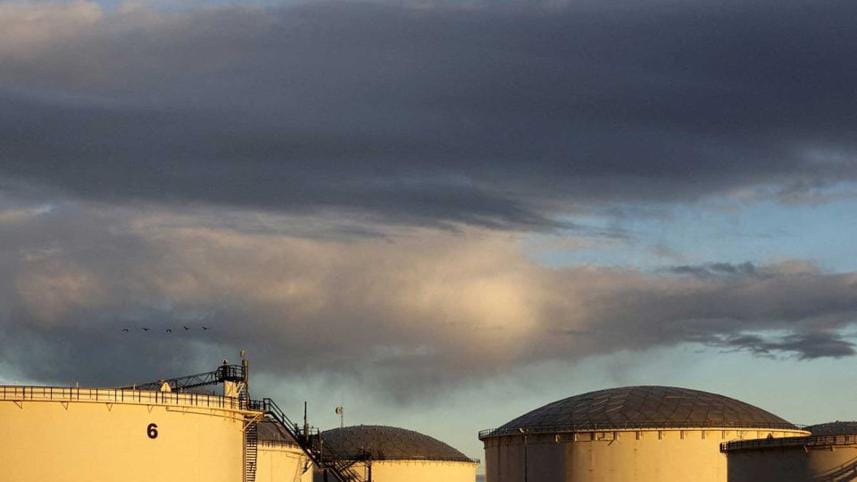Oil price windfall tests Gulf’s fiscal discipline

A petrodollar windfall is helping some Gulf Arab states pay down debt and providing cash for others to diversify their oil-reliant economies, but it is also testing commitments to fiscal discipline as governments try to shield citizens from inflation.
Gulf oil producers have promised more prudence this time as crude prices have spiked higher, seeking to learn the lessons of previous periods of plenty that rapidly turned into eras of belt tightening and deep deficits.
The six Gulf Arab states - Saudi Arabia, the United Arab Emirates, Kuwait, Qatar, Bahrain and Oman - are on track for budget surpluses, some for the first time in a decade, with the help of buoyant oil prices and years of fiscal reforms.
Now, say analysts, they must hold this conservative line.
"The temptation to revert to pro-cyclical spending is real, especially as governmentcontracting continues to drive economic activity in the largest economies, like Saudi," said Karen Young, senior fellow at Middle East Institute in Washington.
Some signs are encouraging. Saudi Arabia, Kuwait and Bahrain have cut spending in their current budgets, although the UAE, Qatar and Oman are spending more. Most budgets were drawn up before Russia invaded Ukraine, which helped send oil surging from below $80 a barrel at the end of 2021 to above $100 now .
Rocketing crude prices and other inflationary pressures have prompted central banks around the world to jack up interest rates, notably the US Federal Reserve. With most Gulf Arab state currencies pegged to the dollar - except for Kuwait's, which is linked to a currency basket - they have largely followed suit.
But inflation at home, even if not as high as elsewhere, has encouraged some, such as Saudi Arabia and the UAE, to boost state spending on social welfare to help citizens.
"The expectation is that inflation is not going to go out of control, but the pressures are there," said Ravi Bhatia, director and lead analyst at S&P Global Ratings. "I don't think it's going to be a game changer on the fiscal front."
Annual inflation in the UAE, the only Gulf state with no cap on vehicle fuel prices, rose to 3.3 per cent in the first quarter, its highest since August 2018. Petrol prices have jumped by 60 per cent since February.
Seeking to offset such price pressures on citizens, Kuwait, which faced a liquidity crunch in 2020, has approved a one-time grant for pensioners totalling almost 600 million dinars ($1.95 billion). Oman has cut electricity tariffs for households.
But Gulf states are increasingly aware that the world's long-term shift away from fossil fuels puts a limit on this oil bounty, adding impetus for them to spend more of their cash windfall on diversifying oil and gas-reliant economies.
Saudi Arabia, the UAE and Oman, for example, have all outlined plans to develop production of 'green' hydrogen, made by splitting water using renewable energy.
Gulf sovereign wealth funds are also playing a part in broadening the role of private enterprise in economies that have long depended on state spending as the main driver.
Scott Livermore, chief economist at Oxford Economics, said spending on diversification from oil would remain high, but he added: "The area where ambitions may be scaled back is diversification of fiscal revenues and trimming back public sector employment."



 For all latest news, follow The Daily Star's Google News channel.
For all latest news, follow The Daily Star's Google News channel.
Comments